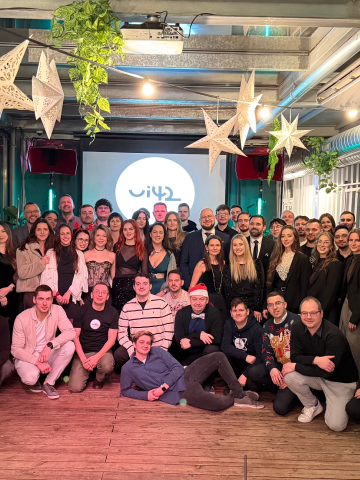Optimization for Generative Search Engines (GEO)
What does it mean
The age of generative artificial intelligence (AI) is changing the way people search for information. The traditional list of blue links in search results is increasingly being replaced by complex, summarized answers generated by AI directly at the top of the page. This change brings with it a new, key approach to online visibility: Optimization for Generative Search Engines (GEO).
More info
What is Generative Engine Optimization (GEO)?
Generative Engine Optimization (GEO), often referred to as Generative Engine Optimization, is a set of strategies and tactics aimed at preparing web content to be optimally understood, processed, and used by generative AI models integrated into search tools (such as Google AI Overviews, Microsoft Copilot, Perplexity AI, or chatbots like ChatGPT).
The main goal of GEO is not just to get a click on a website (as with traditional SEO), but primarily to be cited, mentioned, or directly used as a source in AI-generated responses. In an environment where users receive instant answers without having to leave the search tool (so-called "zero-click" search), this is a key way for a website to maintain and build authority and visibility.
Why is GEO crucial for online visibility?
The impact of generative AI on search is enormous:
-
Growing share of AI responses: More and more search queries are answered directly by AI, which summarizes information from multiple sources. If your content is not optimized for GEO, you risk not being among these cited sources.
-
Building authority and credibility: Being cited by AI search engines or generative models increases the perceived authority and credibility of your website and brand, even if the user does not directly click on your link.
-
New audience: Generative search opens doors to new users who prefer direct answers over browsing long lists of links.
-
Preparing for the future of search: GEO is not just about current trends, but about proactively preparing for the evolution of search, which will be heavily influenced by AI in the near future.
What is the difference between GEO and traditional SEO?
While GEO and traditional SEO are interconnected and complement each other, they have different primary goals and approaches:
| Function | Traditional SEO | Generative Engine Optimization (GEO) |
| Primary Goal | Achieve high ranking in SERP and drive clicks. | To be cited or mentioned in AI-generated responses. |
| Target System | Search engine algorithms (ranking). | Large language models (LLM) and generative AI systems. |
| Focus | Keywords, backlinks, meta tags, technical SEO. | Context, semantics, expertise, content structure for AI understanding. |
| Output for user | List of links and snippets. | Direct, summarized answers, often with source citations. |
Key principles of generative engine optimization (GEO):
A successful GEO strategy relies on the following pillars:
1. Expert, Authoritative, and Trustworthy Content (E-E-A-T): AI models primarily rely on verified, quality, and expert sources. Focus on:
-
Expertise: Write about topics in which you have demonstrable knowledge or experience.
-
Authority: Get cited, gain quality backlinks, and build a reputation in the field.
-
Trustworthiness: Provide facts, data, and citations from trustworthy sources. Be transparent about authors and their qualifications.
2. Semantically Rich and Unambiguous Content: Write for people, but with AI in mind. Your content should be:
-
Clear and Specific: Avoid vague formulations and slang.
-
Consistent: Use uniform terminology.
-
Entity-focused: Explicitly define entities (names, places, concepts) and their relationships in the text.
3. Structured Data (Schema Markup): A key element for AI SEO and also for GEO. Schema Markup (e.g., in JSON-LD format) helps AI understand the context and attributes of your content, making it easier to process and cite.
-
Use specific schema types like
Article,FAQPage,HowTo,Product, etc.
4. Optimization for Questions and Answers (Q&A): Generative search engines are designed to directly answer questions.
-
Formulate sections like "Frequently Asked Questions" (FAQ) with direct, concise answers.
-
Implicitly or explicitly answer questions users might ask within the text.
5. Clear and Logical Content Structure: AI processes well-organized content more effectively.
-
Use clear headings (H1, H2, H3) that summarize the content beneath them.
-
Utilize bullet points, numbered lists, and tables for structured information.
-
Place a short summary or key points at the beginning of the article.
6. Uniqueness and originality of data: Generative AI prefers original information and data. If you have your own studies, surveys, or unique insights, highlight them.
7. Content freshness: AI values the latest and most relevant information. Regularly update your content.
8. Technical Readiness of the Website: Loading speed, mobile responsiveness, and website security remain important for GEO as they contribute to the overall quality of the user experience, which AI indirectly considers.
The future of search and the place of GEO
GEO is not a replacement for SEO, but its essential complement for survival and prosperity in the new era of search. By combining strong SEO foundations with GEO principles, you ensure that your website will be visible not only in traditional search results but also in increasingly dominant AI-generated responses. Integrating these two approaches is key to maintaining the relevance and authority of your online presence.
FAQ GEO / Frequently Asked Questions about GEO
What is the main goal of GEO compared to traditional SEO?
While traditional SEO aims to get clicks on your website by ranking in the top ten search results, GEO focuses on having your content cited or directly used by generative AI models in their summarized responses, often without the need to click on a link.
Which generative search engines are relevant for GEO today?
The most significant include Google AI Overviews (part of Google Search Generative Experience – SGE), Microsoft Copilot (integrated in Bing), Perplexity AI, and also large language models like ChatGPT or Google Gemini, which draw information from the web.
Is it possible for my content to be used by AI even if I'm not on the first page of Google?
Yes, it is possible! AI models seek the most relevant and trustworthy information, regardless of whether it is on the first page of traditional search. The emphasis is on E-E-A-T, content structure, and semantic clarity, which are the pillars of GEO.
How can I measure the success of my GEO strategy?
Measuring GEO is more complex than traditional SEO. Focus on metrics such as: the frequency of citations of your brand/website in AI-generated responses, an increase in "branded" searches after appearing in AI responses, direct traffic from AI-integrated boxes (if available), and increased credibility in online surveys.
Why is it important to use structured data for GEO?
Structured data (Schema Markup) is like a translator for AI. They help AI clearly understand what is on your page (e.g., recipe, product, event), what its properties are, and what the relationships between individual elements are. AI can thus more effectively process and use your information for its responses.
Latest news
Contact us
Don't miss out on the latest news from the world of UX, programming, analytics, and marketing.











